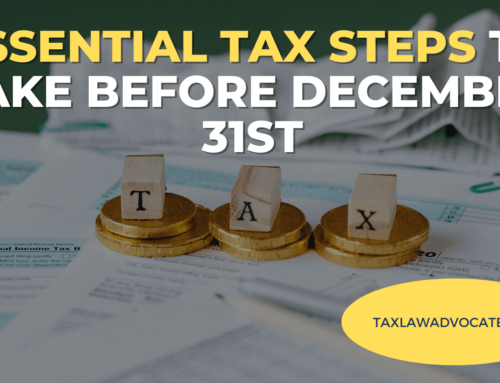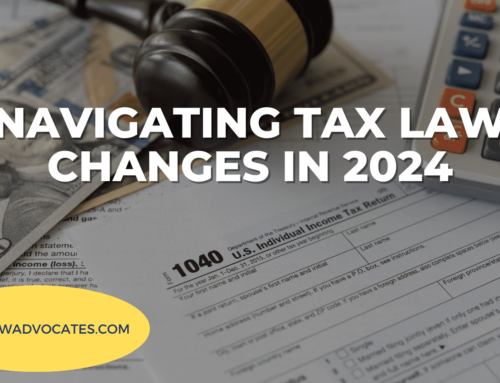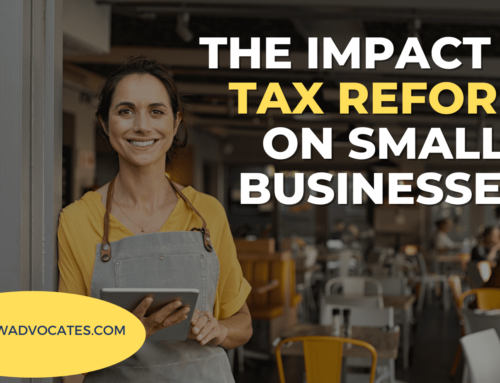Depending on your circumstances, tax season might be a reasonably straightforward process or one that consumes a significant amount of your time and energy. It’s terrible enough to pay taxes, but overpaying the IRS because you’ve made simple (but fatal) mistakes is far worse. So don’t get us started on tax blunders that can eventually trigger the dreaded IRS audit. Talk about blowing both money and time. We tackle ten of the most common mistakes taxpayers make while filing taxes, as well as how to avoid them, to make your taxes as stress-free as possible. You may think to yourself when you read these common mistakes, “I would never make silly tax blunders.” However, remember that the more successful you become in any industry, the more complicated your taxes will become, resulting in more potential for errors. The Internal Revenue Service (IRS) utilizes a unique database to compare what you’ve filed in your taxes and what other business owners have filed. It is frequently done by business owners using various 1099 forms. Some of your earnings, such as non-employee remuneration, may be reported to the Internal Revenue Service using forms like the 1099-MISC. In addition, you’ll probably get 1099s from your investment accounts. Of course, you’ll need to report all of that money on your tax returns, but doing so using the wrong forms could result in extra scrutiny from the federal government.
- Skipping the Services of an Accountant
It might be quite tempting to save money by doing your business taxes using business tax software. While this may work for simple sole proprietorships and self-employed individuals, keep in mind that it might not be a good idea if you are planning to scale to something bigger. Not only do you risk misfiling your return, but you also risk missing out on a few key deductions just because you are unaware that you are eligible for them. Make sure that the accountant that you choose is licensed and has knowledge in your sector as well as in tax planning. You might also wish to acquire references or choose an accountant who a friend or colleague previously hired.
- There is No Separation of Business and Personal Expenses
If you muddle the financial waters by combining personal and business costs, you risk creating a huge problem that will have to be cleared up come tax season. Instead, maintain (and use) separate bank and credit card accounts for the company and personal needs, keep those receipts separate, and pay yourself a salary rather than drawing directly from your business accounts. This is another area where professional bookkeepers can help a lot.
- Your Expenses Are Not Being Tracked Accurately
It is pretty difficult to claim any tax deductions if you do not keep track of your expenditures. This means you’ll need to keep detailed records of your business, including saving receipts, keeping a mileage log, and tracking and classifying costs. Working with a skilled bookkeeper all year is one of the most significant ways to keep track of this information. A small company bookkeeper can not only advise you on what expenses may be deductible and how to monitor them, but they can also help you save time and money by managing your books monthly and assembling your tax information when it’s time to file your taxes.
- You’ve Continually Missed Out on Tax Breaks – And the IRS Won’t Amend Those Returns for You
You may miss substantial tax savings opportunities because you’re not fully aware of credits and certain tax deductions. While the IRS will most certainly notice missing W-2 income or if you claim someone as a dependent who is already claimed by someone else, they will not amend your return if you forget to claim the Child and Dependent Care Credit or home office tax deductions. What this means is you could be losing a significant sum of money upon filing taxes.
- You Ignored the Costs of Starting Your Business
It’s easy to lose track of money spent getting your small business up and operating in the first year. So many people purchase domain names, create websites, and sometimes even rent space before completing all necessary business formation processes. Startup costs may still be deducted in your first year of operations. It’s possible to deduct up to $5,000 in this period, with the rest of your expenses to be spread out over the next 15 years. If your startup expenditure exceeds $50,000, you’ll need to consult with a good accountant.
- You Didn’t Look at Your Alternative Minimum Tax Liability (AMT)
Tax planning typically entails maximizing deductions and deferring income, but this isn’t always the case. The Alternative Minimum Tax (AMT) is a separate tax system that determines your tax payment without considering certain tax benefits, such as large itemized deductions. If your AMT tax is higher than your tax under ordinary income tax regulations, you must pay the difference as AMT tax. 7.You Did Not Include Charity Donations in Your Business Costs You can’t offset charitable contributions on your Schedule C under typical conditions. Giving money to charities in exchange for marketing, on the other hand, is a business expense. So you’ll get a more extensive tax break this way than you would with an itemized deduction.
- You Forgot to Pay Your Kids
You can deduct the wages you pay your children to work in your firm, and they pay less tax than you do. The standard deduction protects the first $5,950 earned by the child, and any income earned after that is taxable at the child’s rate, which is usually substantially lower than yours.
- You’ve Not Automated Your Records at All
Record-keeping for small businesses is not always as tricky as it formerly was. In reality, crumpled receipts in shoeboxes (or grocery bags) should be a thing of the past Use synced personal financial software with your bank accounts. Automatic record-keeping saves self-employed folks a lot of time while reducing the likelihood of fatal tax errors.
- You’ve Complicated Your Business More Than You Should Have
Stick with a Schedule C, Sole Proprietorship, unless you need to form a corporation or partnership for whatever reason. It’s the easiest way to file, and you won’t have to dismantle anything if you change your mind.
Taxpayers across the nation are facing anxiety over their taxes. It is important to seek professional help that is licensed to represent taxpayers like the Tax Law Advocates. Tax Law Advocates is licensed to work on tax issues that occur nationwide. Contact us now for a free consultation!





